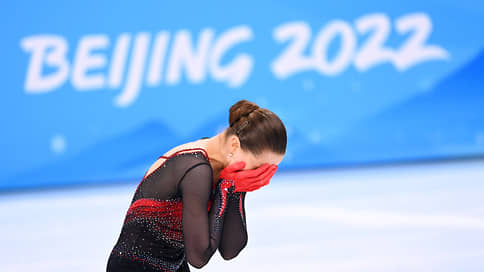Kamila Valieva will fight for innocence
[ad_1]

The famous Russian singles skater Kamila Valieva will insist at a hearing at the Court of Arbitration for Sport (CAS) at the end of September that she is either completely or almost completely innocent of the most notorious and complex doping incident in world sport. After the Russian team won the team tournament at last year’s Olympics in Beijing, it became known about Valieva’s positive test, but the disciplinary committee of the Russian Anti-Doping Agency (RUSADA) acquitted her. Meanwhile, the World Anti-Doping Agency (WADA) intends to achieve a long disqualification for the athlete, and his success in CAS will deprive the Russian team of Beijing gold.
The Court of Arbitration for Sport has published material on the hearings, which will open in court on September 26 and will last three or four days. They will examine the high-profile case of the famous Russian figure skater Kamila Valieva.
We are talking about one of the most procedurally complex doping processes in world sports in recent years. The fact that the prohibited drug trimetazidine was found in the sample of Kamila Valieva, at that time the undisputed leader in world women’s single skating, taken in December 2021 at the Russian Championships in St. Petersburg, became known a month and a half later, during the Beijing Olympics, shortly after the end of the team tournament. The Russian team won it largely thanks to Valieva. She brought the team 20 points out of 74, winning both the short and free programs.
It turned out that the Russian Anti-Doping Agency, having learned about the sample, temporarily suspended the athlete from competition, but the suspension was successfully challenged in an independent disciplinary committee.
The International Olympic Committee (IOC), which, due to the story with Kamila Valieva, has not yet held an official award ceremony for the winners of the Beijing team tournament, the World Anti-Doping Agency, as well as the International Skating Union (ISU) did not agree with its position and filed an appeal with CAS . The protests were rejected.
Then the CAS stated that a temporary suspension could not be imposed on Kamila Valieva due to exceptional circumstances. The fact is that, as a minor figure skater (she turned 16 in April 2022), Valieva, in accordance with the World Anti-Doping Code, was a so-called protected person. This status implies the possibility of special treatment of an athlete in situations where he commits a violation of the regulations or is suspected of such, for example, in the form of a significant, even warning, mitigation of punishment. Kamila Valieva, who never admitted guilt, was admitted to compete in the individual Olympic tournament, but only took fourth place in it.
RUSADA, which international sports authorities ordered to conduct an investigation into the incident with the figure skater, reported the completion of the investigation in mid-September 2022. And in winter, the RUSADA disciplinary committee, formally an independent body, having stated that Valieva had committed a doping violation, did not find any signs of “guilt or negligence” in her actions and considered it unacceptable to apply any sanctions against the skater other than the cancellation of the results shown that day when she tested positive. So, in his opinion, the only punishment for Kamila Valieva could be deprivation of her gold won at the St. Petersburg Russian Championship.
Three structures did not agree with this interpretation of the case. Moreover, together with WADA and ISU, RUSADA also appealed to CAS.
The most interesting part of the document presented by the highest sports arbitration authority relates precisely to the positions stated by the four participants in the process.
It follows from the document that WADA, like promised earlier, will seek a maximum four-year disqualification for Kamila Valieva (the period is counted from December 25, 2021) with the cancellation of all results shown after a positive test. The agency’s success in CAS will thus deprive the Russian team of Olympic gold. The ISU’s demands are a little softer: he agrees to a two-year suspension.
RUSADA in fact only seeks a guilty plea for Kamila Valieva with “appropriate consequences,” which, as it indicates, can be limited to a warning.
But Valieva herself, judging by the CAS publication, is not going to admit guilt. She insists on her complete, or at least almost complete, innocence—that the violation of the regulations occurred “unintentionally”—and even on her reinstatement as the winner of the Russian Championship. True, Kamila Valieva’s side also agrees to a compromise option, which still provides for punishment. This is a disqualification for a period of “maximum two years” (in other words, effectively expiring in the coming months) without invalidating any results.
[ad_2]
Source link









